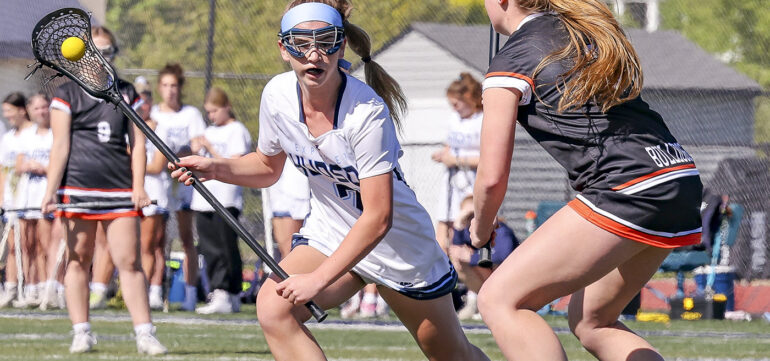Nothing ever comes easy. As a coach, most games will present you with the challenge of how to prepare your team to handle certain scenarios or circumstances. Players must know what strategic approaches to take in every situation. Take time in practice to discuss with your team the various scenarios that may play out during a game, and how they should be handled. After all, you can’t be out on the field to make the plays, so the guys who are need to know exactly what you want them to do.
Playing Against a Superior Opponent
David vs. Goliath, Giants vs. Patriots in Super Bowl XLIV, Buster Douglas over Mike Tyson in 1991 – all of those events involved a huge underdog knocking off the top dog. What all of those underdogs had in common was that they had a plan of how to exploit their opponent’s weakness. They were also all confident that they were up to the challenge, and weren’t intimidated by the hyped opponent. Playing against a superior team can be intimidating to young or inexperienced teams – it’s your job as a coach to instill confidence in your players so that they can overcome the odds and beat the big boys.
The first step is to do a little bit of scouting and find out about your opponent. Watch them play and identify their weaknesses as a team. Once you’ve done that, adjust your team’s strategy to incorporate things that you feel will frustrate the opponent. If your opponent is a weak outside shooting team, think about going to a zone defense to force them to take outside shots. If the opponent is slow in the midfield, instruct your goalie to place an emphasis on his outlet passes. Have your middies make it their goal to beat their man up the field during clears, and look to initiate a lot of transition. Whatever your opponent does poorly, figure out how your team can exploit it.
Another aspect of pulling off the upset has to do with the mentality of your team. A team must truly believe that it can win, even if no one else does. The players have to sell themselves on the fact that they are talented and motivated enough to beat the big boys. They have to take pride in doing the little things that go beyond athleticism or strength, and doing so takes heart and desire. Ground balls, shot backup, blocking shots and overall intelligence can all be major factors to upsetting a superior team. Great teams are great because they do all the small stuff, so your boys will have to one-up them in those areas if they want to pull off the upset.
Playing Against an Inferior Opponent
Often a team will fail to respect the ability or desire of an inferior opponent. When you’re the top dog, everyone’s going to bring their A-game when they show up to play you. Your team must understand what got it to the top to begin with, and how they can use that in the game to put a weaker team out of its misery.
Right from the get-go your team needs to have its foot on the gas. The earlier you can send a message and not allow an opponent to hang around in a tight game, the less morale the adversaries will have. Emphasize to your guys that they should be hitting hard (nothing dirty), and not slacking early in the game. The best way to make sure an inferior opponent doesn’t have a fighting chance is to pull away early and demoralize them, taking away their confidence and fire.
Strategically, rely on what got you where you are. If your team excels in transition, look to push the ball for fast break opportunities whenever possible. If your team plays excellent pressure defense and forces a lot of turnovers, press out on opposing ball carriers and apply the pressure all game long. Don’t allow your opponents to dictate the pace of the game.
Winning by Less than Three, Late in the Game
Teams that play not to lose often end up losing. Many teams look to stall and get passive when they have a small lead with a few minutes left in the game. These teams will end up giving up crushing goals oftentimes, and may lose games they should win. The teams that know how to put a game away in the closing minutes will be ready to challenge for championships and reach new heights.
If you have the lead late in the game, it probably means your team was aggressive at the right times during the game. Don’t stop being aggressive! Just do it intelligently. Being proactive and looking to score late in a game can put it out of reach for a team trailing by a few. Make certain your players know how and where to look for shots, though. Players should never shoot when there is no backup behind the cage. Also, passes into the crease should never be forced. The worst thing your team can do when leading late in a close game is to turn the ball over.
With the defense likely pushing out and looking to force turnovers, instruct your players to move their feet all the time and look to go to the cage if the opportunity presents itself. They don’t have to shoot, though, if they don’t have a good look. Holding the ball and continuing to milk the clock is okay, too.
Losing by Less Than Three, Late in the Game
When trailing late in a close game, your team will have no choice but to take some extra chances that they normally would not. Passes they normally wouldn’t make, throwing checks they normally wouldn’t throw, and dodging when they normally wouldn’t dodge all have to happen if your team is going to come back and pull off the victory.
Defensively, the boys will have to turn up the pressure as high as it gets. You cannot allow the other team to hold the ball and run out the clock. The defenders must be comfortable double-teaming and applying hard pressure to ball carriers, as well as possibly playing without the goalie in the cage.
Here are a few tactics you can do defensively to cause turnovers:
- Double-team behind GLE (goal line extended) with the goalie, with other defenders shutting off adjacent passing options.
- Force offensive ball carriers out of the restraining box (with less than two minutes left).
- Take chances with harder checks.
Defenders must be prepared to carry the ball up the field and initiate transition, as fast break goals can quickly build momentum and narrow the deficit on the scoreboard.
Offensively, your guys are going to have to push cage whenever possible and start shooting a little more recklessly. Make sure all shots are backed up so that you can keep possession if the rip misses the cage. Feed the crease often and look to get quick shots on cage. If you score, send your best faceoff guy out there to try to gain possession.
Playing a Team that Relies on One Player
Teams that rely on one guy to do most of the work can be very frustrating to play (if the guy really is that good), but also easy to stop. All it takes is proper preparation and the right strategy.
Teams whose main guy is an offensive player (attack or midfield) can be stopped with aggressive defensive sliding and double-teaming almost immediately after the player begins his move to the goal. A zone defense is also a good strategy against a team like this.
When facing a team with a dominant goalie, make sure that your players do not force long or bad shots. Goalies have a tendency to get even better after they make a few easy saves. Tell your players to be patient, and look to make the extra pass to try to get someone open closer to the goal for an easier shot.
Against a team with a dominant FOGO (faceoff specialist), special attention should be paid to stopping his chances to push up-field into a fast break right off the faceoff. Have the LSM (long stick midfielder) on the wing crash into the hole to cut the fast break instead of going for the ball off the whistle.
A dominant defenseman can be taken out of a game relatively easily by instructing the player he is guarding to not attempt to drive on him or handle the ball against him. Force the dominant player to play off the ball and be a help defender.
Play Smart & Play Hard
An emphasis on intensity and intelligence throughout the course of the season will have your players playing the game the right way, and never with a lack of focus. Areas where the other team may be stronger than yours can be masked if everyone is on the same page, and know how to handle any type of situation.

